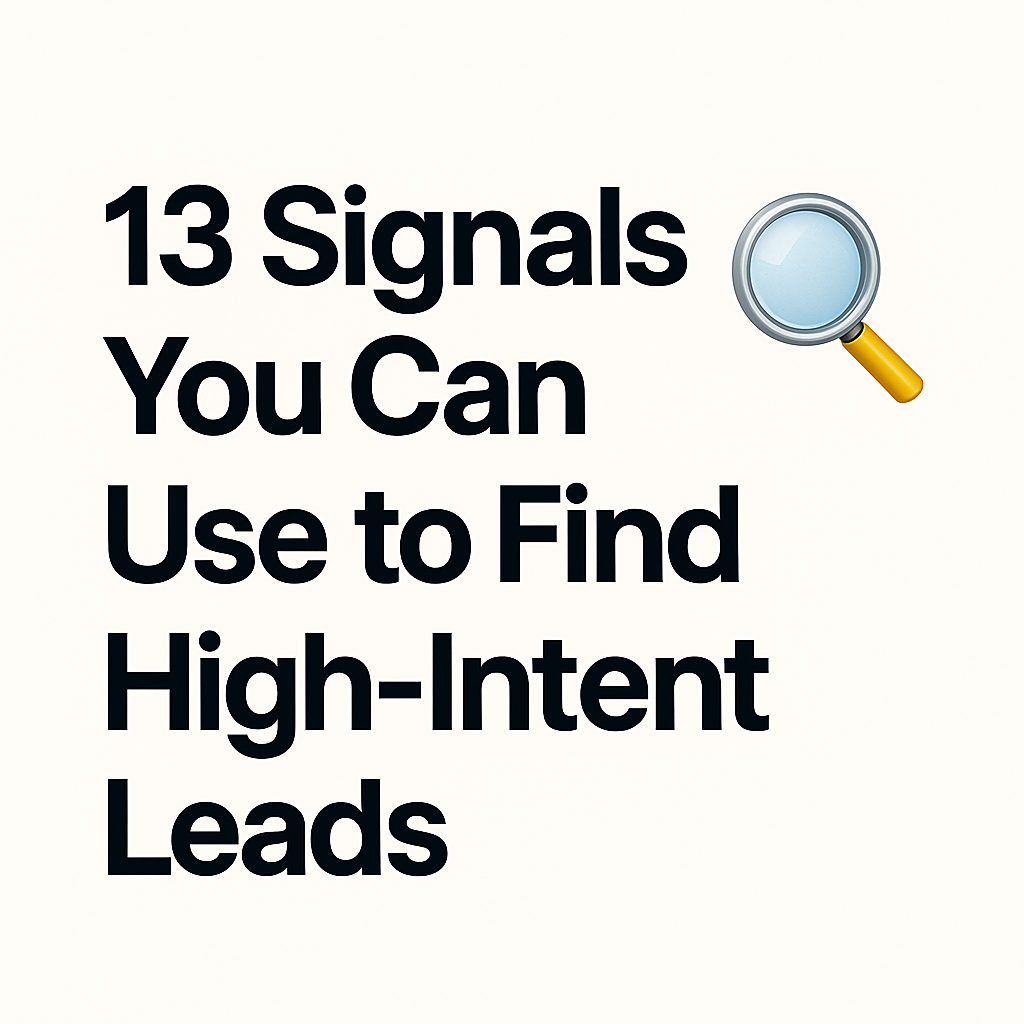12 Best Alternative to ZoomInfo Options for 2025 (And How I Found My Perfect Fit)

Alright, let's have a real talk. I remember staring at our monthly invoice from ZoomInfo, and my coffee suddenly tasted bitter. ☕ The number was… significant. We were paying a premium for a massive database, but were we using it effectively? The honest answer was no.
We were spending hours sifting through contacts, dealing with data decay, and our outreach felt like shouting into the void. It was the classic 'more data, more problems' scenario. I made a mistake: I assumed a bigger database automatically meant better leads. Wrong. 🤦♂️
That was my wake-up call. I realized we needed more than just data; we wanted intelligence. We needed a platform that could show clients that was ready to buy now, not just give us another phone number to cold call.
Looking for a better, possibly cheaper alternative to ZoomInfo?
The great news is, you have several options. I went down the rabbit hole, tested countless platforms, and learned some hard lessons. This guide is the result of that deep, extensive research. I'm sharing the absolute best alternatives I found, from established players like Apollo.io to innovative newcomers like GojiberryAI.
Each review includes detailed analysis, pros & cons, pricing insights, and screenshots. So you can find the perfect fit for your team's needs and budget. Ready? Let's help you get your solution.
1. GojiberryAI: The AI-Powered Intent Data Specialist
Ever feel like you're shouting into the void with cold outreach? You spend hours digging for leads, crafting the perfect message, only to get… crickets. I’ve been there. You build a list that seems solid, but in reality, 99% of those contacts haven't even considered making a purchase. GojiberryAI is a powerful alternative to Zoominfo that flips this entire model on its head by focusing on one thing: real-time buying intent.
Instead of just giving you a massive, static database, GojiberryAI acts like a heat-seeking missile for warm leads. It utilizes advanced AI to monitor social platforms like LinkedIn for buying signals, think new job posts for roles you sell to, company announcements about expansion, or specific posts about the pain points your product solves. This is a game-changer because it answers the "why now?" question before you even reach out.
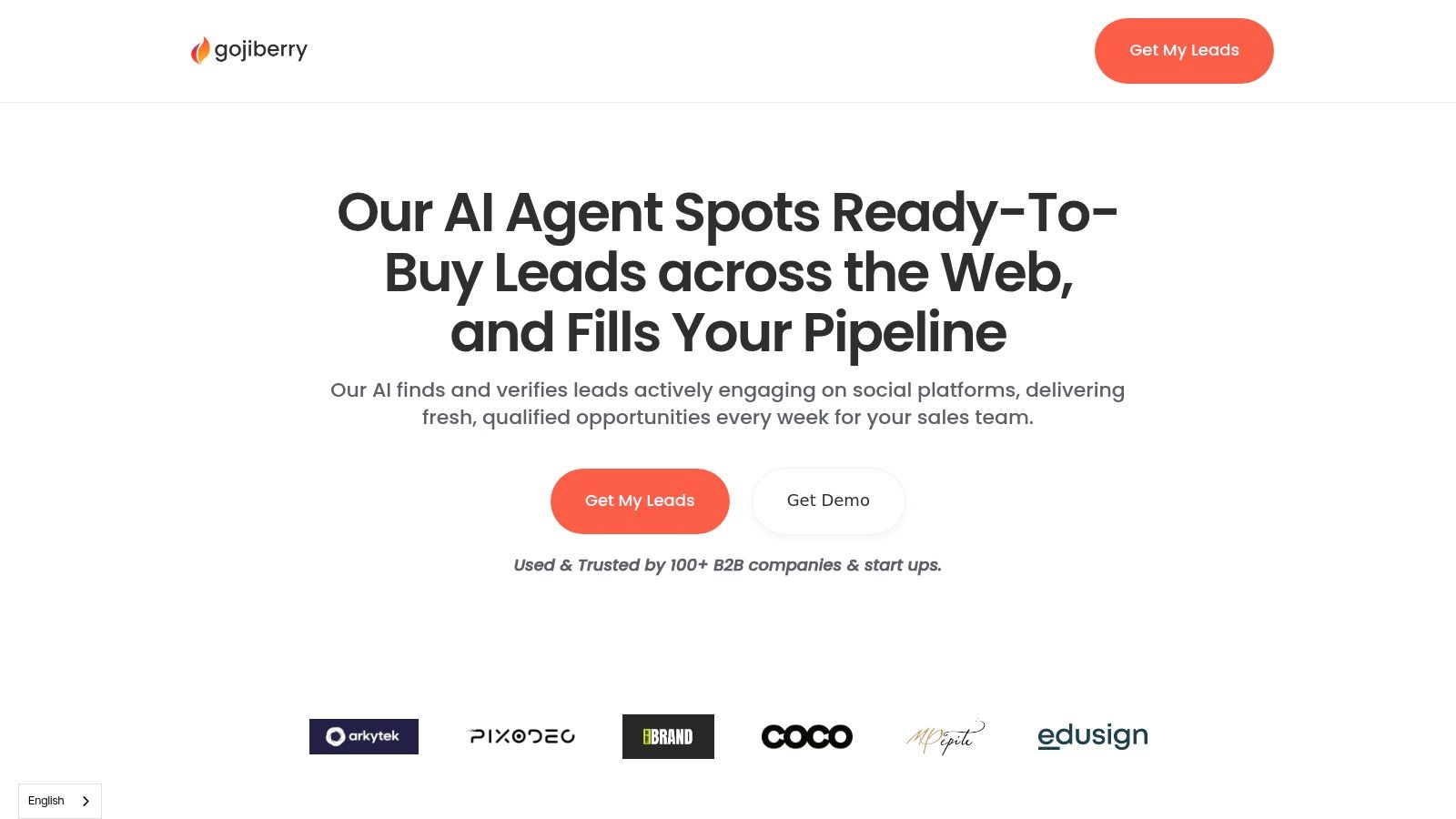
Why It Stands Out
What makes GojiberryAI a truly compelling choice is its shift from who? to when? While ZoomInfo provides the "who" (contact data), GojiberryAI tells you when to contact them, which is often the missing ingredient for success. This focus on intent means your outreach is timely and relevant, transforming cold calls into warm conversations.
Clients report a staggering 50% boost in LinkedIn reply rates and that 73% secure a meeting within their first week. Why? Because you're not just another random salesperson; you're a problem-solver showing up at the exact moment they need one.
This approach is perfectly suited for startups, software companies, and agile sales teams who need to maximize every ounce of effort and can't afford to waste time on unqualified prospects. It essentially automates the most tedious part of prospecting, saving users an average of 10+ hours weekly.
Practical Tips & Use Cases
- For Founders & Startups: Set up alerts for when competitors' customers post about service issues or when companies hire for a key role that signals a need for your tool. It’s your secret weapon for grabbing market share.
- For Sales Teams: Integrate GojiberryAI with your CRM and Slack. Create a dedicated Slack channel where fresh, intent-heavy leads are automatically dropped for the team to act on immediately. Speed to lead is everything.
- Actionable Advice: NEVER use the intent signal as your opening line ("I saw you posted..."). That's creepy. Instead, use it as context to personalize your outreach. If they're hiring a new sales team, your opener can focus on the challenges of scaling sales operations.
Website: Gojiberry.ai
2. UpLead
UpLead positions itself as a powerful, yet more affordable, alternative to ZoomInfo, focusing squarely on data accuracy. They back this up with a bold 95% accuracy guarantee, which, in my experience, translates to fewer bounced emails and wasted outreach efforts. The real-time email verification is a lifesaver; it checks an address right before you download it, ensuring you get a valid contact.
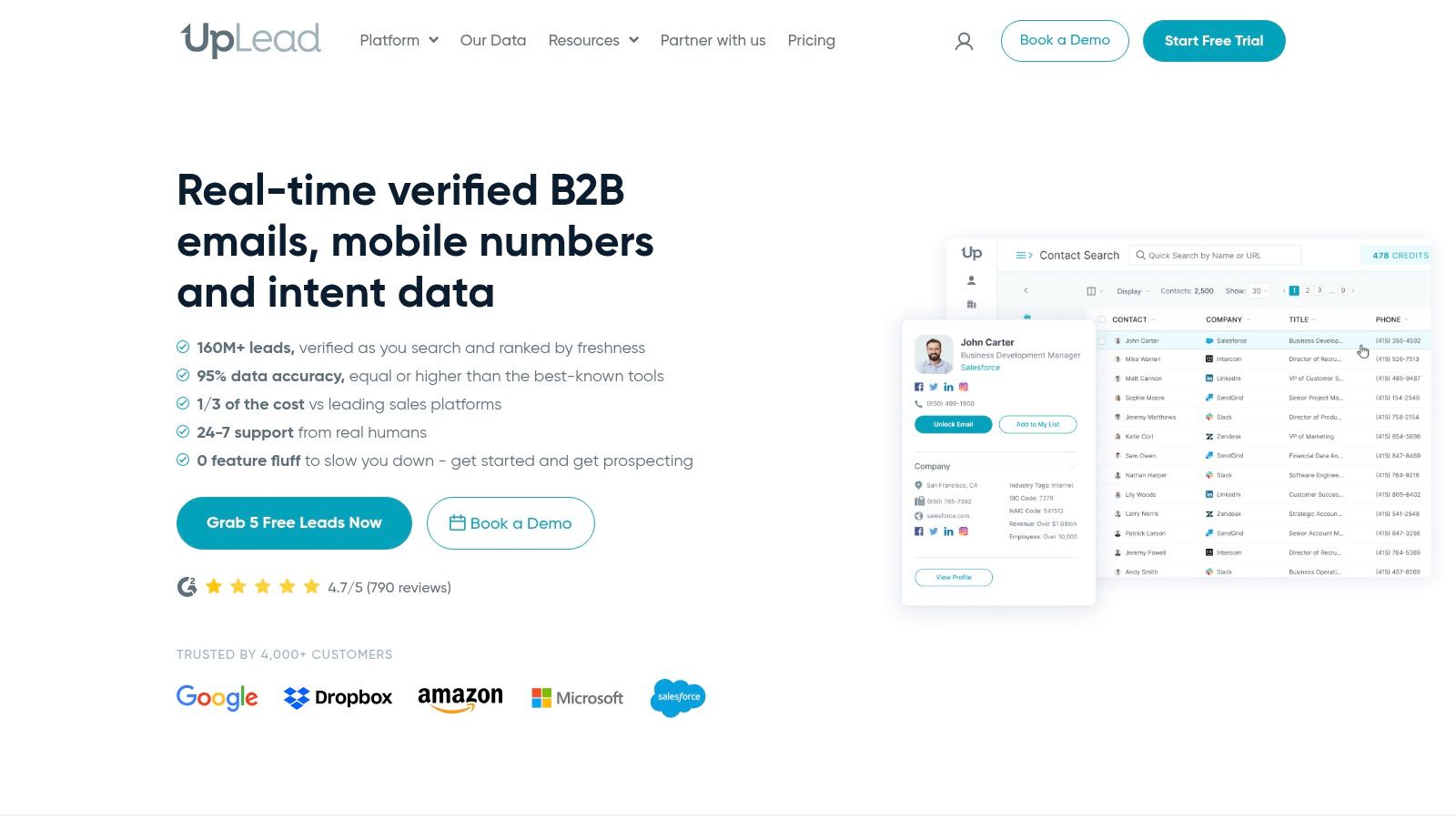
The platform is refreshingly straightforward. You can dive in and start building targeted lists using over 50 filters, including technographics, to see what software a company uses. Their intent data feature is also a game-changer for identifying companies actively researching solutions like yours. If you're looking to capitalize on buying signals, you can explore how to use intent signals to find high-intent leads on gojiberry.ai.
Key Details & Pricing
- Best For: Startups and SMBs needing high-quality, verified B2B data without the enterprise-level price tag.
- Pros: High accuracy guarantee, user-friendly interface, real-time verification.
- Cons: The free trial is limited to only 5 credits, and some smaller company data can occasionally be outdated.
- Pricing: Paid plans start at $74/month for 170 credits.
- Website: https://www.uplead.com/
3. Apollo.io
Apollo.io is a powerhouse in the sales intelligence space, merging a massive contact database with a full suite of engagement tools. It's more than just a data provider; it’s an all-in-one platform for prospecting, sequencing, and analyzing outreach.
For sales teams wanting to consolidate their tech stack without breaking the bank, Apollo.io presents itself as a compelling alternative to ZoomInfo. The platform boasts a database of over 275 million contacts, and its AI-driven recommendations are good at uncovering lookalike prospects you might have missed.
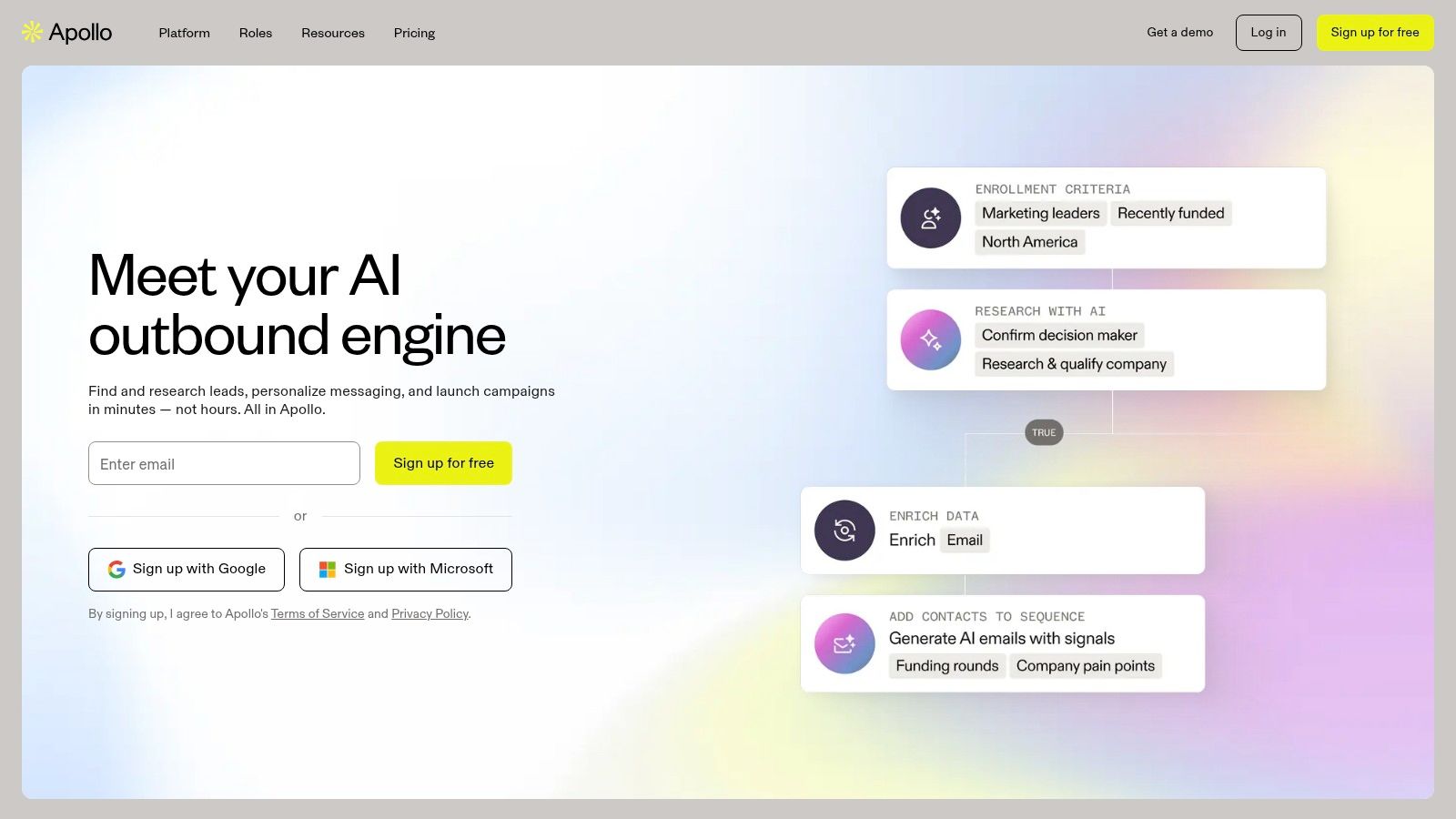
The real magic is combining its data with built-in engagement features. You can build a list, create a multi-step email sequence, and track performance all within one interface.
While it's an incredible value proposition, it's worth noting that its broad scope means it competes on many fronts. If you're weighing your options in this category, you can explore other top alternatives to Apollo.io on gojiberry.ai to see how it stacks up for different use cases.
Key Details & Pricing
- Best For: Sales teams and startups looking for an affordable, all-in-one sales intelligence and engagement platform.
- Pros: Comprehensive feature set (data, sequencing, analytics), extremely competitive and transparent pricing, great for consolidating tools.
- Cons: Some users report occasional data accuracy issues, and the sheer number of features can feel overwhelming for beginners.
- Pricing: Offers a generous free plan; paid plans start at $49/user/month.
- Website: https://www.apollo.io/
4. Cognism
Cognism stakes its claim as a leading alternative to ZoomInfo by prioritizing one thing above all else: compliance. For any business operating in or targeting Europe, their laser focus on GDPR is a massive relief. They offer a globally compliant contact database, specializing in verified, hard-to-find mobile numbers, which dramatically increases your chances of connecting directly with decision-makers. It’s built for teams that can’t afford to take risks with data privacy.
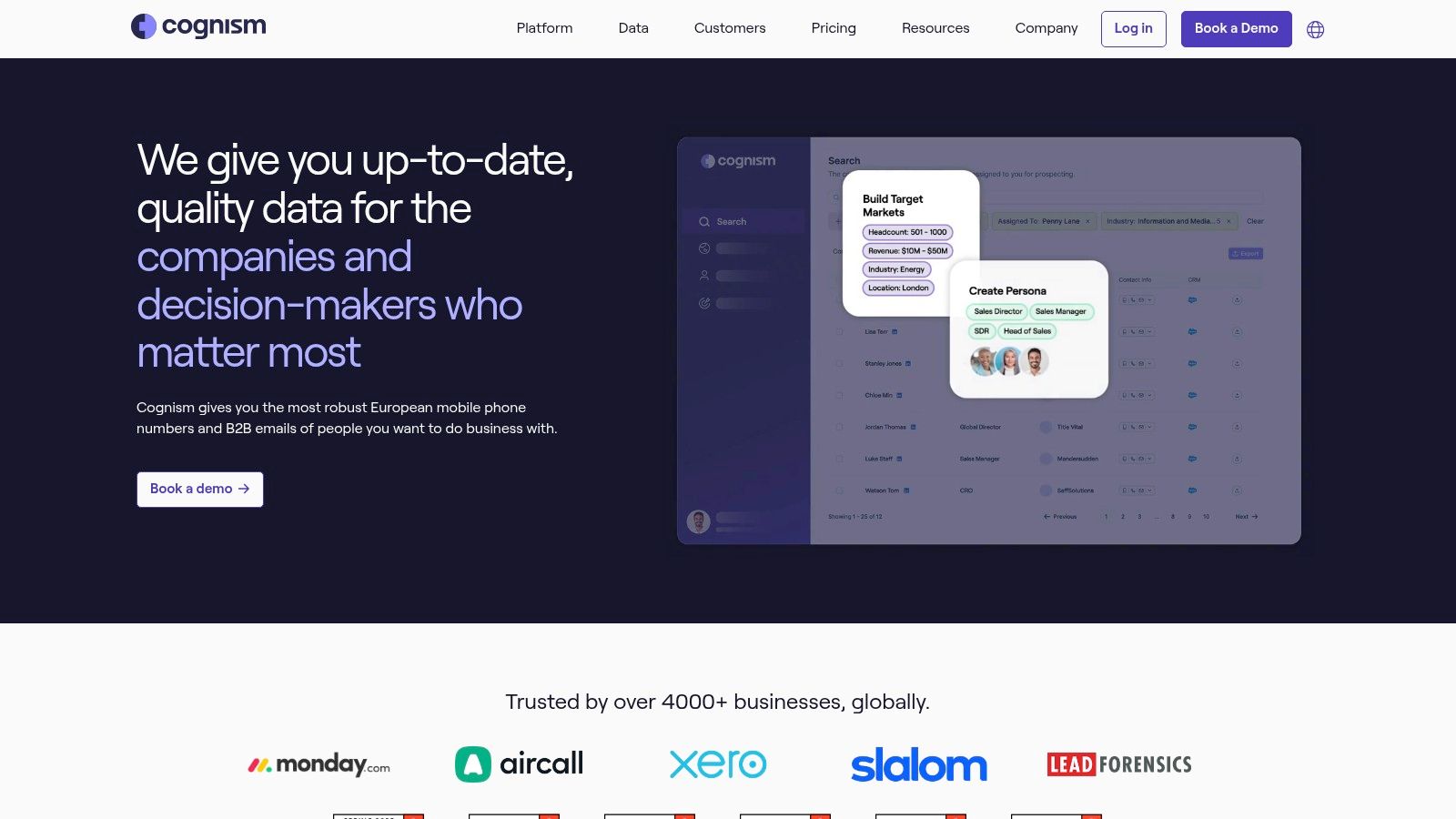
The platform isn't just about contacts; its intent data, powered by Bombora, helps you pinpoint accounts actively researching solutions like yours. When I used it, the seamless integration with Salesforce was a standout feature. You can perform advanced data enrichment directly within your CRM, ensuring your existing records are always fresh and accurate without manual busywork. This is crucial for maintaining a clean and powerful sales pipeline.
Key Details & Pricing
- Best For: Global sales teams and businesses targeting the European market that need strictly GDPR and CCPA-compliant data.
- Pros: Strong compliance focus, high accuracy on mobile phone numbers, seamless CRM integration.
- Cons: Pricing isn't publicly available, and it can be a more expensive option, potentially out of reach for smaller businesses.
- Pricing: Custom pricing is available upon request, typically for an annual subscription package.
- Website: https://www.cognism.com/
5. Lead411
Lead411 is a solid contender in the sales intelligence space, often seen as a more accessible alternative to ZoomInfo. It boasts a massive database, but what I’ve found most useful are the growth intent triggers. These aren't your regular intent signals; they highlight specific company events as hiring sprees, recent funding rounds, or leadership changes. This allows for incredibly timely and relevant outreach. Did your target company just open a new office? That's your cue to reach out.
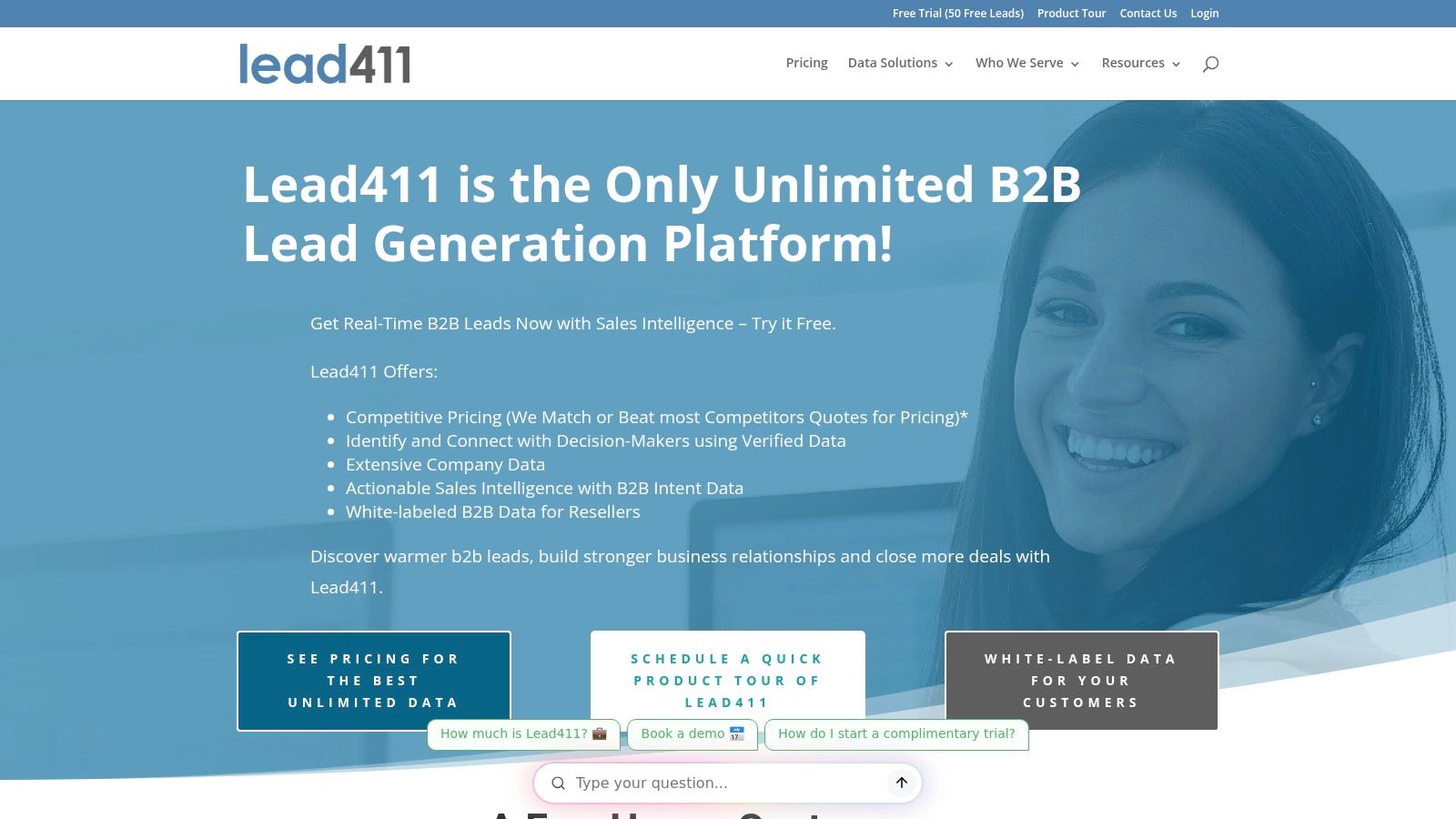
The platform integrates this intent data directly into its search, making it easy for you to build lists of companies that are not only in your ideal customer profile, but also showing clear signs of growth and buying potential right now.
Their Chrome extension is also quite handy for pulling verified emails and direct dials directly from LinkedIn profiles, which saves a ton of time. While it's powerful, you need to be strategic if you're to get the best out of the lower-tier plans.
Key Details & Pricing
- Best For: Sales teams looking to leverage company growth signals and hiring trends for timely outreach.
- Pros: Excellent growth intent triggers, large contact database, and useful Chrome extension for prospecting.
- Cons: Some data for smaller companies can be outdated, and the best features are reserved for higher-priced plans.
- Pricing: Custom pricing is available upon request, though entry-level plans are more affordable than enterprise plans.
- Website: https://www.lead411.com/
6. RocketReach
RocketReach is a powerhouse in database size, boasting an impressive 700 million professionals in its system. For teams whose primary goal is sheer volume and a wide net, this platform is a serious contender. When I was prospecting for a niche industry, RocketReach’s extensive database was a huge help, often pulling up contacts other platforms missed. It’s a solid alternative to ZoomInfo if you need a vast pool of potential leads to start with.
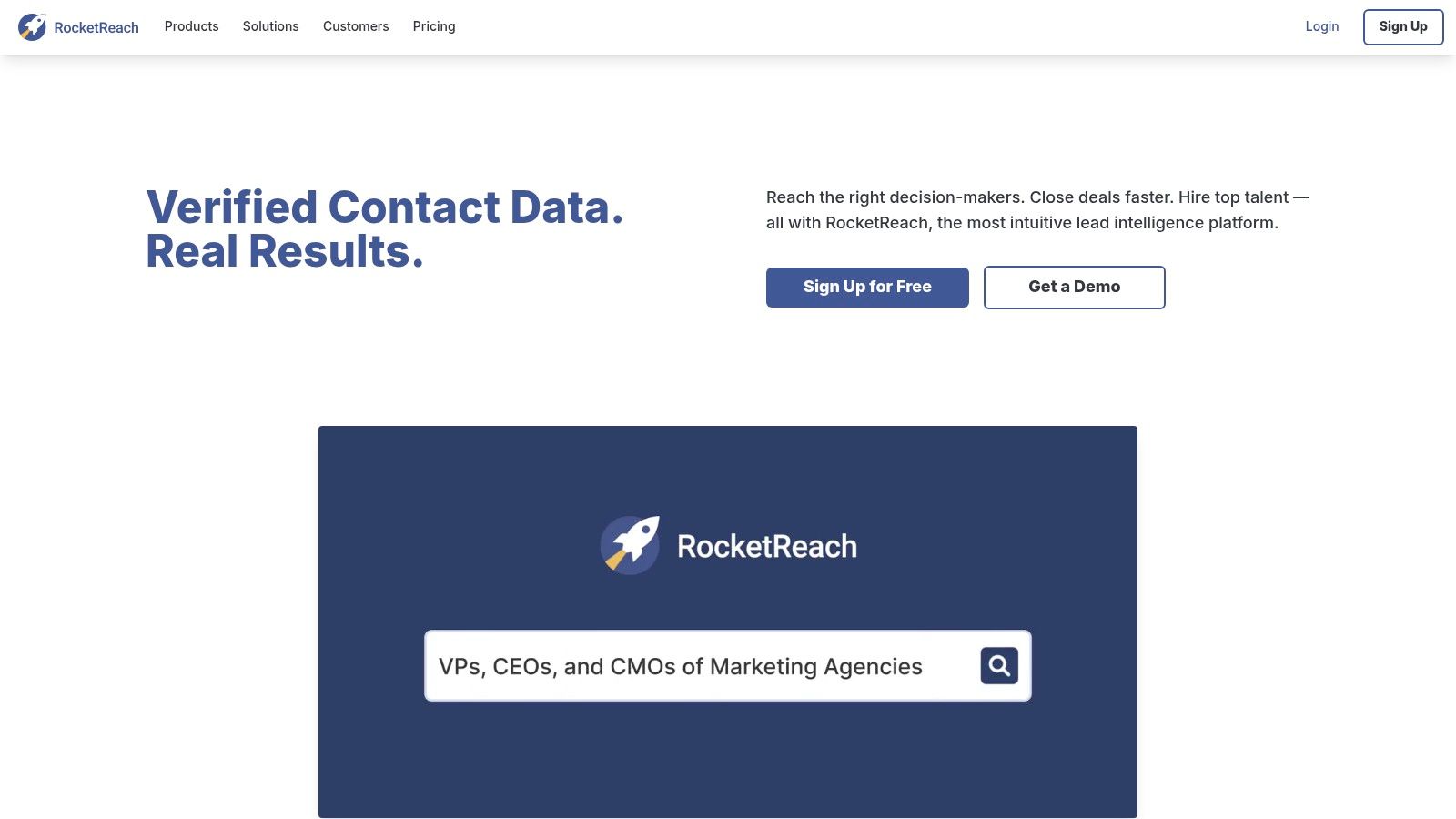
The platform’s user-friendliness is a big win; you don't need a lengthy onboarding process to start using its advanced search filters. The Chrome extension is useful for getting contact info directly from LinkedIn profiles or company websites, which streamlines the prospecting workflow significantly. While its stated data accuracy is around 85%, I found its direct-dial numbers to be surprisingly reliable. Just be prepared to do a little extra verification on your end.
Key Details & Pricing
- Best For: Sales teams and recruiters who need access to a massive contact database and value a simple, easy-to-use interface.
- Pros: Extremely large database, user-friendly platform, responsive customer support.
- Cons: Data accuracy is lower than some competitors (around 85%), and pricing can be a stretch for small businesses or solopreneurs.
- Pricing: Paid plans start from $53/month for 80 lookups.
- Website: https://rocketreach.co/
7. Lusha
Lusha is often the first name that comes up when sales reps seek an accessible alternative to ZoomInfo, and for good reason. Its main strength lies in its simplicity and the seamless workflow it creates, especially with its slick browser extension. I’ve found it incredibly useful for quickly grabbing verified direct dials and email addresses while prospecting on LinkedIn or company websites. You click the extension, and boom, contact info appears.
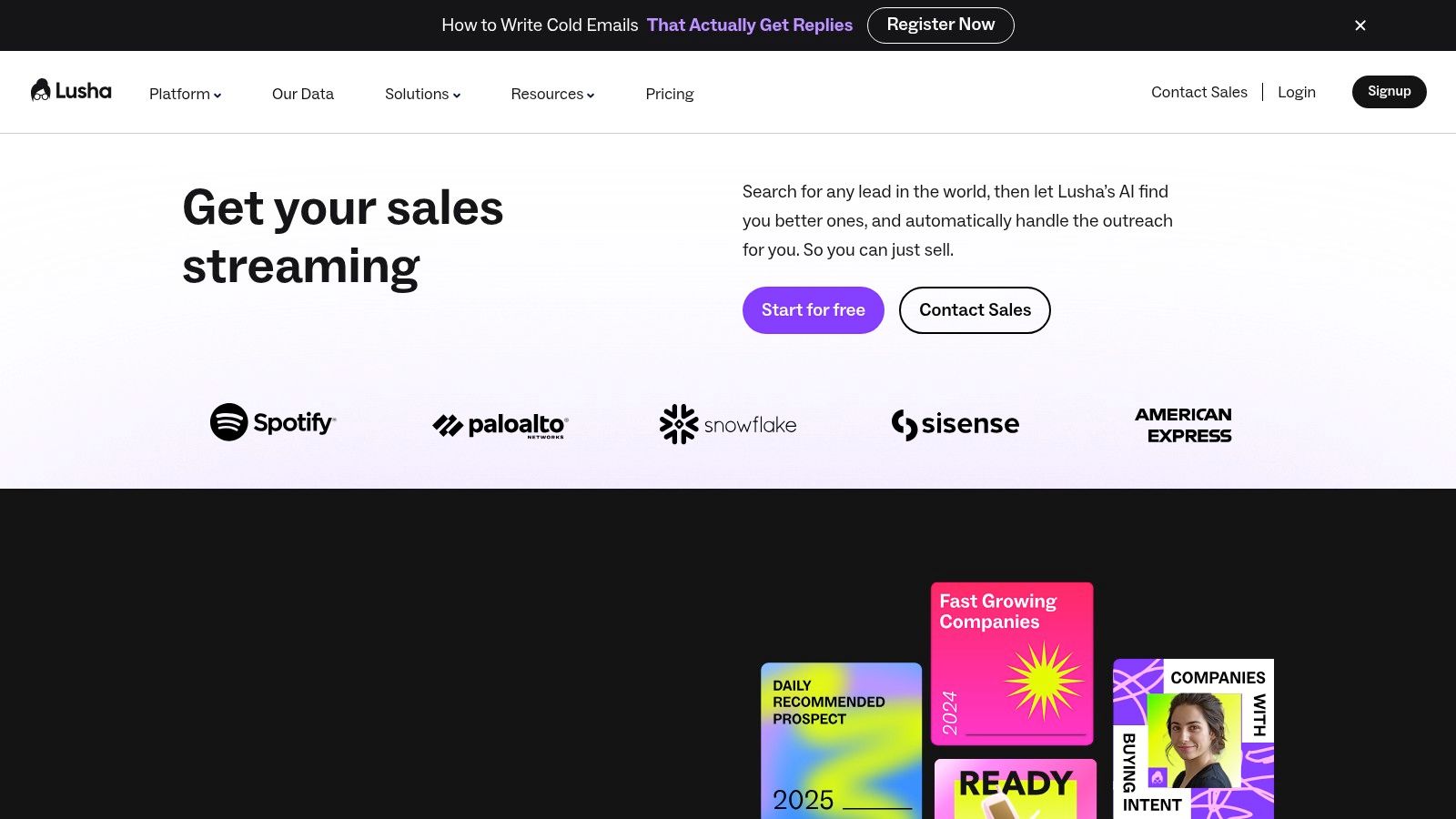
The platform focuses on doing one thing exceptionally well: providing accurate, person-level contact data on demand. While it may not possess deep company-level insights or intent data of some larger platforms, its ease of use makes it a favorite for sales teams that need to move quickly. The integrations with Salesforce and HubSpot are straightforward, making it easy to push new contacts directly into your CRM without manual data entry. It’s a workhorse for pure contact acquisition.
Key Details & Pricing
- Best For: Individual sales reps and small teams needing a fast, easy-to-use tool for finding direct contact information.
- Pros: Highly accurate contact data, excellent browser extension, very user-friendly interface.
- Cons: The free plan is quite restrictive, and credit costs can add up quickly for larger teams or heavy users.
- Pricing: Offers a free plan with 5 credits/month. Paid plans start at $29/user/month (billed annually).
- Website: https://www.lusha.com/
8. SalesIntel
SalesIntel takes a human-first approach to data, positioning itself as a premium alternative to ZoomInfo by emphasizing accuracy through manual verification. Their commitment is impressive; they claim to re-verify their entire dataset every 90 days. From my experience, this means you’re working with fresher, more reliable contact information, which is a massive win for reducing bounce rates and connecting with the right people on the first try.
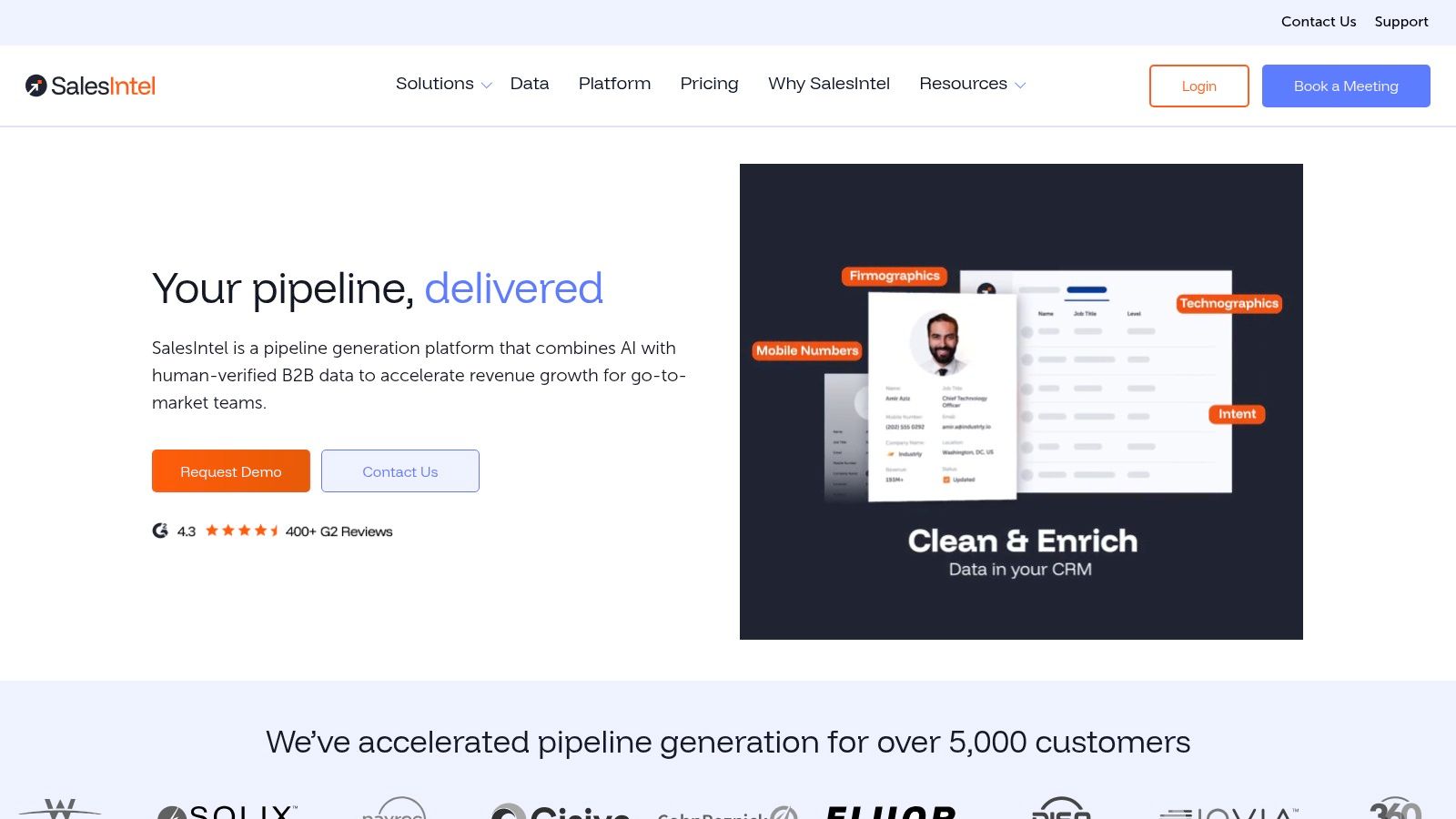
What stands out is their "Research-on-Demand" service. If you can't find a specific contact, their team will literally go and find it for you, typically within a few hours. This is like having a research assistant on call.
The platform also includes robust firmographic, technographic, and intent data, making it a comprehensive tool for building highly targeted outreach campaigns. Their Chrome extension is also quite handy for prospecting directly on company websites and LinkedIn profiles.
Key Details & Pricing
- Best For: Sales and marketing teams in mid-market to enterprise companies that prioritize data accuracy and are willing to invest in it.
- Pros: High data accuracy due to 90-day human verification. Research-in-Demand service as a unique extra benefit, coupled with excellent customer support.
- Cons: Pricing isn't publicly listed, which can be a hurdle for initial evaluation, and some niche company data can still be hard to find.
- Pricing: Custom pricing available upon request. You'll need to contact their sales team for a quote.
- Website: https://salesintel.io/
9. Clearbit
Clearbit stands out as an alternative to ZoomInfo by focusing heavily on real-time data enrichment directly within your existing workflows. It’s less of a standalone database and more of a powerful engine that supercharges your CRM and marketing platforms. My team loves it because it turns simple email or company domain into a rich profile, automatically filling in details like company size, industry, and employee roles right inside Salesforce. This saves an insane amount of manual research time.
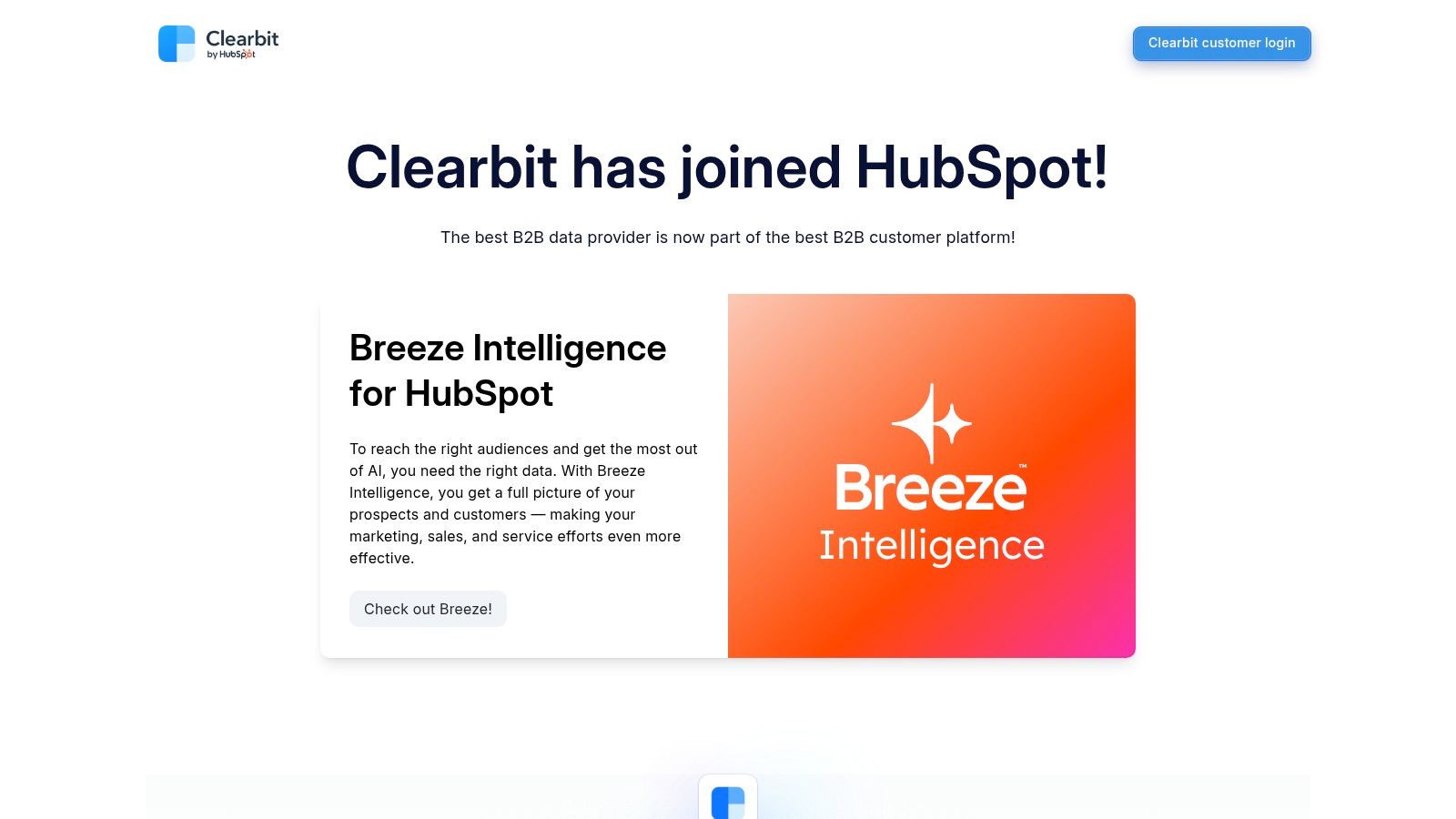
The platform’s API-first approach is its greatest strength. You can build highly customized lead scoring models or personalize website content on the fly for visitors from target accounts.
It’s a developer-friendly tool that allows for deep integration, making it a favorite for tech-savvy marketing and sales ops teams. Their commitment to GDPR compliance also provides peace of mind, especially when dealing with European markets. The data is consistently fresh and accurate, making your outreach more relevant and timely.
Key Details & Pricing
- Best For: Tech-forward companies and marketing teams who need to enrich their existing data and automate lead routing within their CRM.
- Pros: Excellent real-time data enrichment, powerful API for custom integrations, and strong focus on compliance.
- Cons: Pricing is not publicly available, can be expensive, and relies on having an initial piece of data (like an email) to enrich.
- Pricing: Custom pricing available upon request.
- Website: https://clearbit.com/
10. Seamless.AI
Seamless.AI markets itself as a real-time search engine for B2B contacts, and in many ways, it lives up to that claim. Its biggest selling point is the speed at which you can find and save leads, especially with its slick browser extension that works directly on LinkedIn. If you need to build a large list quickly, Seamless.AI is a strong alternative to ZoomInfo.
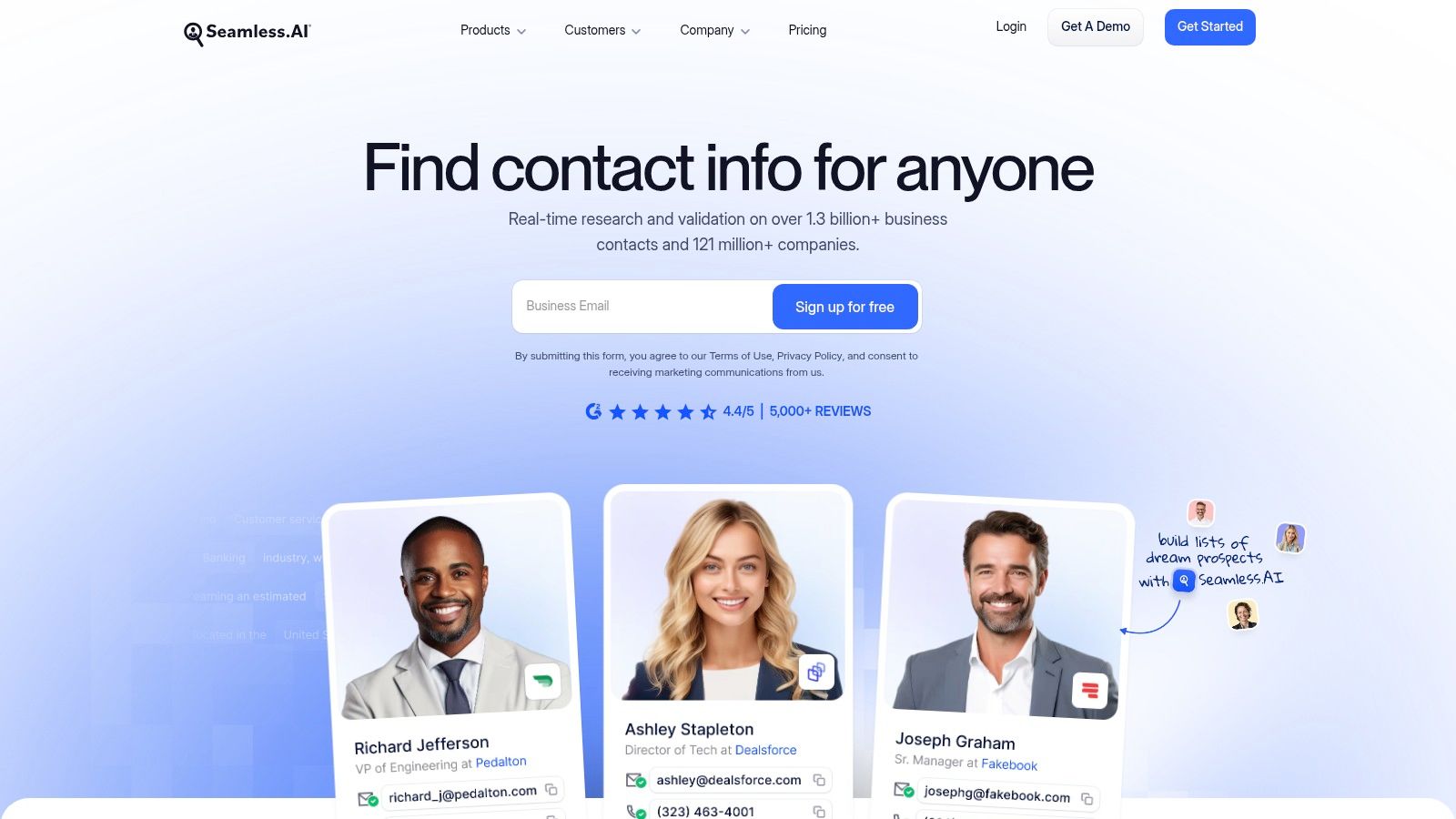
The platform’s AI constantly scours the web to validate data, which means you're theoretically getting the freshest information possible. From my experience, while the interface is incredibly intuitive, the data quality can sometimes be variable. The AI-powered copywriter is a neat feature for quickly drafting outreach emails, though it's best used as a starting point. Its buyer intent data and robust CRM integrations also help streamline your sales workflow effectively.
Key Details & Pricing
- Best For: Sales teams that prioritize speed and volume and need a tool that integrates seamlessly into their daily LinkedIn prospecting.
- Pros: Real-time data updates, intuitive and fast interface, decent integration options.
- Cons: Some user-reported data quality issues, and the pricing isn't publicly listed, requiring a sales call.
- Pricing: Custom pricing available upon request. A free plan is offered with a limited number of credits.
- Website: https://www.seamless.ai/
11. LinkedIn Sales Navigator
LinkedIn Sales Navigator is a beast in its own right, functioning as a powerful alternative to ZoomInfo by tapping directly into LinkedIn’s massive professional network. Instead of just giving you a static contact list, it offers a dynamic way to find, understand, and engage with leads based on their real-time professional activity. I’ve found its advanced search to be indispensable for pinpointing decision-makers at target accounts using filters as seniority level, company size, and even keywords in their profiles.
What sets it apart are the real-time alerts. Getting a notification when a key prospect changes jobs or when their company is mentioned in the news is like having an inside track, allowing for perfectly timed outreach. The InMail feature is also a direct line to otherwise hard-to-reach executives.
While it's not a traditional data provider, its strength lies in leveraging social signals for sales, and you can supercharge this with other tools. For more ways to leverage the platform, check out these top free LinkedIn lead generation tools on gojiberry.ai.
Key Details & Pricing
- Best For: Sales teams that rely heavily on relationship-building and want to leverage social selling signals for outreach.
- Pros: Unparalleled access to LinkedIn's network, real-time updates and alerts on leads, and powerful, granular search filters.
- Cons: Expensive when compared to other tools, and the interface may feel complex and overwhelming at first.
- Pricing: Plans start at $99.99/month per user (or $79.99/month if billed annually) for the Core plan.
- Website: https://business.linkedin.com/sales-solutions/sales-navigator
12. D&B Hoovers
D&B Hoovers is a true heavyweight in the business data world, making it a powerful alternative to ZoomInfo for enterprise-level needs. Backed by Dun & Bradstreet's massive data cloud, it offers some of the most comprehensive company profiles you'll find, going deep into corporate family trees and financial details. When I needed to understand the complex structure of a multinational prospect, Hoovers was invaluable for mapping out subsidiaries and key decision-makers across the entire organization.
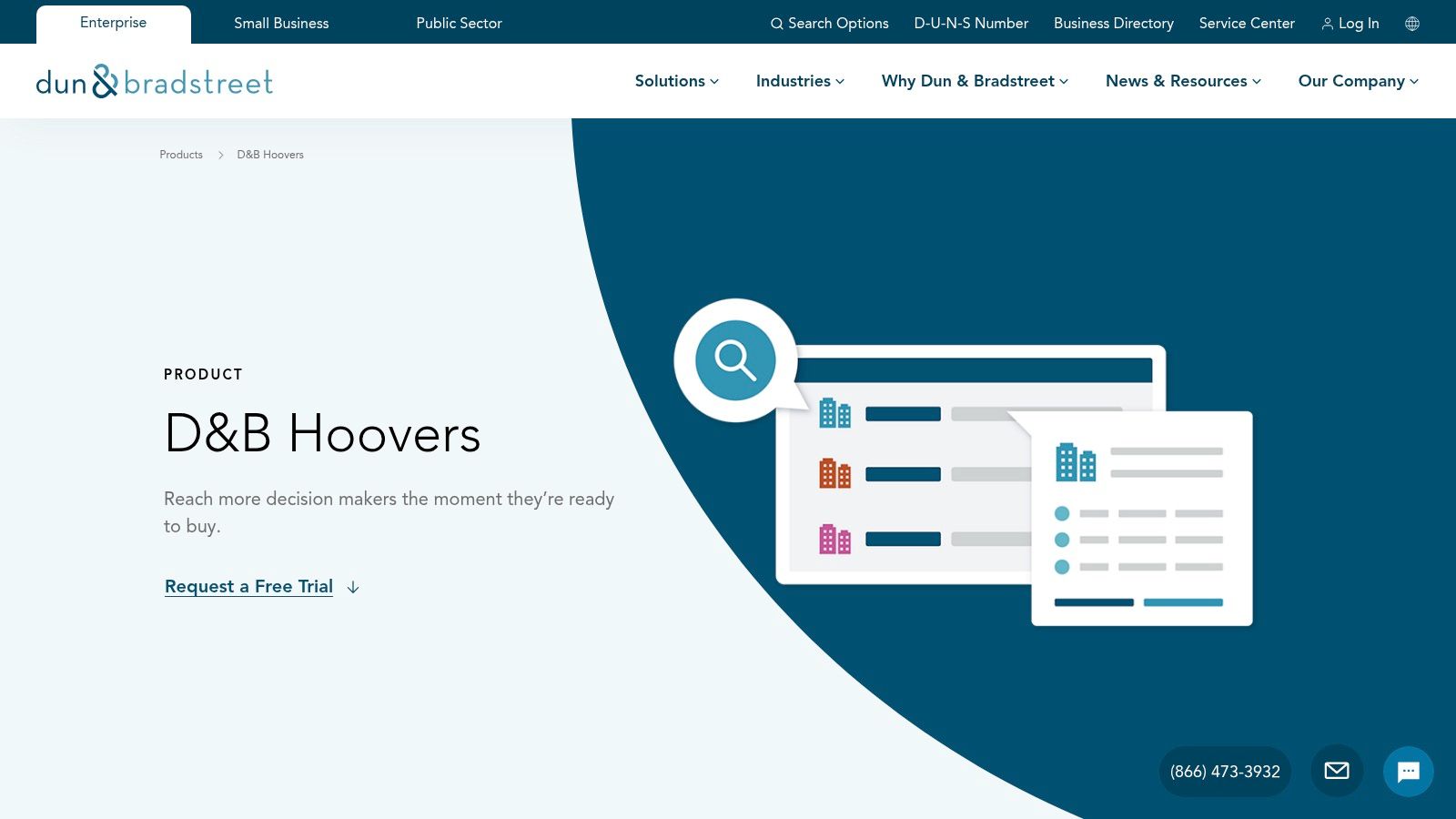
The platform shines with its advanced analytics and real-time sales triggers. You can build specific lead lists and get alerts on company events such as funding rounds or leadership changes, which is a fantastic way to time your outreach perfectly. The interface can feel corporate and complex compared to more modern tools, but the sheer depth of its business intelligence is what sets it apart. It’s a tool for serious, data-driven sales operations that need granular firmographic insights.
Key Details & Pricing
- Best For: Enterprise sales teams and large organizations that require deep, structured data on global companies.
- Pros: Extremely comprehensive company profiles, advanced analytics for sales insights, and powerful real-time sales triggers.
- Cons: Pricing is opaque and requires a custom quote, which often puts it in a higher price bracket. Some of the smaller businesses' data can be less current.
- Pricing: Custom quote required; generally considered a premium-priced solution.
- Website: https://www.dnb.com/products/marketing-sales/dnb-hoovers.html
Top 12 ZoomInfo Alternatives Feature Comparison
Stop Searching, Start Connecting: Your Next Steps to Smarter Prospecting
So there you have it – a deep dive into the dynamic world of B2B data and a comprehensive look at the best ZoomInfo alternatives on the market. We've journeyed together from the common pain point of wrestling with an expensive, one-size-fits-all platform to discovering a new landscape of specialized, intelligent prospecting tools. The market has evolved, and the "spray and pray" approach is officially dead.
Remember my early mistake? I was obsessed with database size, thinking more contacts automatically meant more deals. I learned the hard way that volume is a vanity metric; relevance is what drives revenue.
The biggest takeaway from this entire guide should be this: the "best" alternative to ZoomInfo isn't a universal title. It's the platform that aligns perfectly with your team’s unique workflow, budget, and, most importantly, your definition of a high-intent lead.
The game has fundamentally changed. It's no longer just about who has the most phone numbers. It's about pinpointing the right contacts, understanding their needs before the first email, and engaging them with a message that resonates at the exact right moment. This shift from cold data to warm intelligence is what separates top-performing sales teams from the rest.
Your Action Plan for a Smarter Sales Stack
Feeling overwhelmed by the options? Don't be. Making a change is simpler than you think when you have a clear Goal. Forget endless analysis paralysis and start taking decisive steps. Here’s a simple, actionable framework to guide your decision-making process, based on the lessons I’ve learned firsthand.
- NEVER Blindly Renew Your Contract: This is the cardinal sin of SaaS management. Before you even think about renewing your current provider (be it ZoomInfo or another), conduct a ruthless ROI audit. How many closed-won deals can you directly attribute to the platform in the last six months? Be honest. If the numbers don't justify the cost, it's time to move on.
- Do Define Your "Golden" Signals: What does buying intent look like for your business? Get specific. Is it a company hiring for a key role? A prospect engaging with a competitor’s content? A recent funding announcement? A key change in their tech stack? List your top 3-5 intent signals. This list is your compass for evaluating which alternative to ZoomInfo will deliver leads that are ready for business.
- Take Action with Free Trials: Every tool we’ve discussed, from the all-in-one power of Apollo.io to the intent-focused GojiberryAI, offers a trial or a demo. Don’t just watch the demo; get your hands dirty. Set up a pilot program with a select group of your top representatives. Give them a real-world task: "Find 10 new accounts showing X, Y, and Z intent signals." See which tool makes this process faster, more accurate, and more intuitive.
Your competitors are already leveraging these advanced strategies to gain a competitive edge. They are reaching out to your ideal customers with hyper-relevant messaging while others are still scrolling through stale, generic lists.
The real question is, how long can you afford to wait before utilizing an alternative to ZoomInfo? The time to evolve your prospecting strategy was yesterday. The next best time is right now. Equip your team with a tool that doesn't just sell you data, but delivers tangible opportunities on a silver platter.
Frequently Asked Questions
### Why should I look for an alternative to ZoomInfo in the first place?
Great question! While ZoomInfo is a powerful tool with a massive database, it may not always be the perfect fit for everyone. I found myself seeking alternatives due to the high cost, the overwhelming volume of data that was difficult to sift through, and the sense that I was paying for features I didn't utilize. Many teams seek alternatives to find more targeted data (real-time intent), a more affordable price point, better integration with their specific tech stack, or a platform with a stronger focus on data compliance like GDPR. It’s all about finding the tool that maximizes your ROI, not just your contact list size.
### Is there a free alternative to ZoomInfo?
Yes, but with limitations. Platforms like Apollo.io and Lusha offer excellent free plans that give you a set number of credits per month. These are suitable for individual reps, small startups, or just for testing the waters. However, they're not a true substitute for a paid plan if you're doing outreach at scale. My advice? Use the free plans to validate a platform's data quality and user experience before committing to a paid subscription. They are your best friend for a "try before you buy" strategy.
### What’s the most important factor when choosing a sales intelligence tool?
Honestly, it comes down to one thing: relevance. Does the tool give you information that leads to relevant conversations? A decade ago, it was about data accuracy. Today, accuracy is table stakes. The best tools now focus on timing and context. For my team, the most important factor became buying intent signals. Knowing when a prospect is actively looking for a solution like ours is far more valuable than just having their phone number. Define what "relevance" means for your sales process, and that will be your north star.
### How do I convince my boss to switch from ZoomInfo to a new platform?
You need to speak their language: ROI. Don't just say "this new tool is cool." Build a business case. Use my 3-step action plan from the conclusion.
- Audit the Old: Show the exact cost of ZoomInfo versus the number of deals directly sourced from it.
- Pilot the New: Use a free trial of a top contender (like GojiberryAI or Apollo) with one or two reps.
- Show the Difference: After a week or two, present a comparison: "With ZoomInfo, we found 50 cold leads and booked 1 meeting. With [New Tool], we found 15 high-intent leads and booked 3 meetings in half the time." Numbers are undeniable. Show them you're not just trying to save money, you're trying to make more money, more efficiently. That's a conversation every boss wants to have.
More High-Intent Leads = Your New Growth Engine.
Start Now and Get New High Intent Leads DeliveredStraight to Slack or Your Inbox.







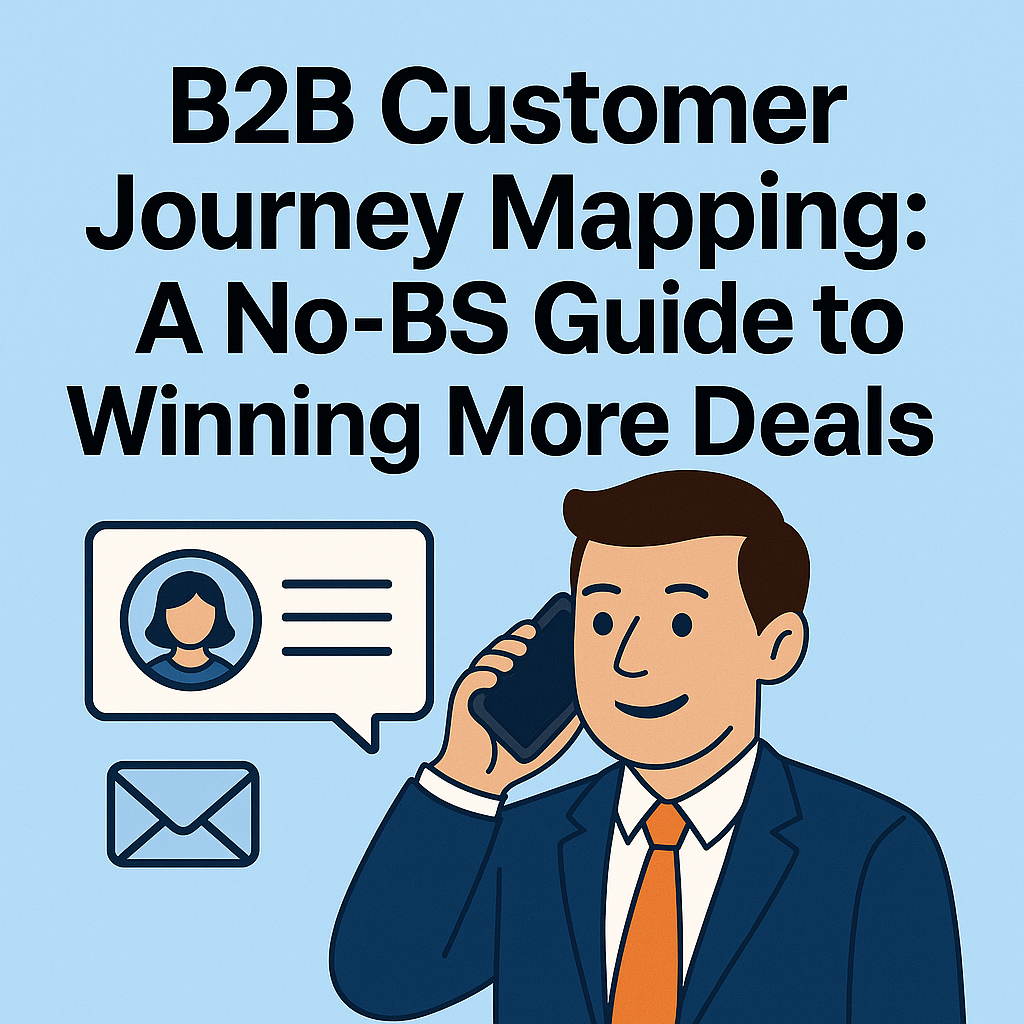

.png)
